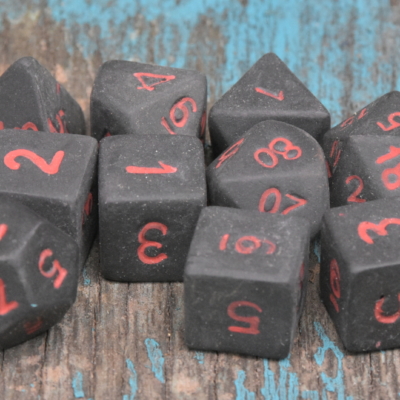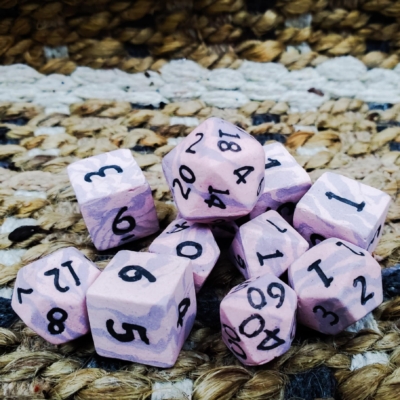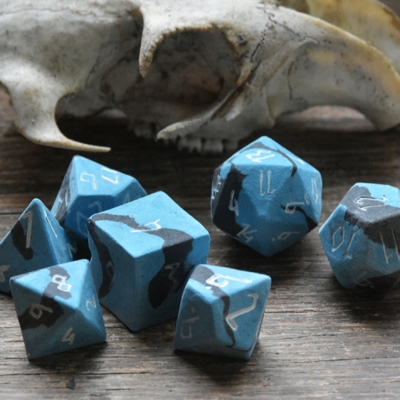Incorporating Religion into Your D&D Campaign
When crafting a rich and immersive campaign in Dungeons & Dragons, one of the most potent tools at your disposal is the incorporation of religion. Whether you’re a Dungeon Master (DM) seeking to deepen your world-building or a player looking to add layers to your character’s backstory, understanding how religion can influence and enhance your game is key.
Understanding the Role of Religion in D&D
Religion in Dungeons & Dragons can serve many functions. It provides characters with motivation, offers narrative depth, and can even influence gameplay mechanics through divine spells and blessings. For instance, playing as a centaur barbarian, you might follow a deity that embodies nature or the wilds, which could manifest as unique abilities or personal quests.
The Runic Skeleton Ceramic Dice Set is perfect for rolling those divine interventions or fate-driven outcomes in your game!
Tips for Beginners
- Selecting a Deity: Start by choosing a god whose domains align with your character’s goals. This alignment helps guide roleplay decisions and enriches story arcs.
- Cultural Context: Consider how different cultures within your campaign world worship this deity differently. This adds layers to NPC interactions and societal norms.
Advanced Strategies
- Create Divine Quests: As an advanced DM, intertwine quests that are driven by divine intervention. These can push players towards moral dilemmas or epic battles.
- Diverse Pantheons: Introduce multiple gods that might be at odds with each other. This complexity creates rich storytelling opportunities and player engagement.
Engage All Age Groups
A well-crafted narrative appeals to players of all ages by providing familiar themes—like good vs evil—while also exploring nuanced moral questions that invite deeper thought.
Incorporating religion into your Dungeons & Dragons (D&D) campaign can be an instrumental tool in creating a rich and immersive gaming experience. As a Dungeon Master (DM), the incorporation of religion can help deepen your world-building efforts and make your campaign more engrossing. Similarly, as a player, understanding the role of religion in the game can add layers to your character’s backstory, making them more rounded and engaging. For example, if you’re playing a centaur barbarian, your character might follow a deity that embodies nature or the wilds, providing unique abilities or personal quests. Religion in D&D can also influence gameplay mechanics, offering narrative depth through divine spells and blessings. The Runic Skeleton Ceramic Dice Set would be an ideal choice for rolling those divine interventions or fate-driven outcomes.
For beginners, it’s important to select a deity whose domains align with your character’s goals. This alignment can guide roleplay decisions and enrich story arcs. Also, consider the cultural context of how different cultures within your campaign world worship the chosen deity. This consideration can add depth to NPC interactions and societal norms. For advanced DMs, introducing quests driven by divine intervention can be a great strategy. These quests can present players with moral dilemmas or lead them to epic battles. Additionally, introducing diverse pantheons with gods at odds with each other can create rich storytelling opportunities and increase player engagement.
A well-crafted narrative that incorporates religion can appeal to players of all ages. It can provide familiar themes like good vs evil, while also exploring nuanced moral questions that invite deeper thought. This balance can make the game more engaging and thought-provoking, making your campaign a memorable one.
-
Necromancer Ceramic Dice Set
Select options This product has multiple variants. The options may be chosen on the product page -
Violet Rose Ceramic Dice Set
Select options This product has multiple variants. The options may be chosen on the product page -
Runic Dark Castle Ceramic Dice Set
Select options This product has multiple variants. The options may be chosen on the product page






